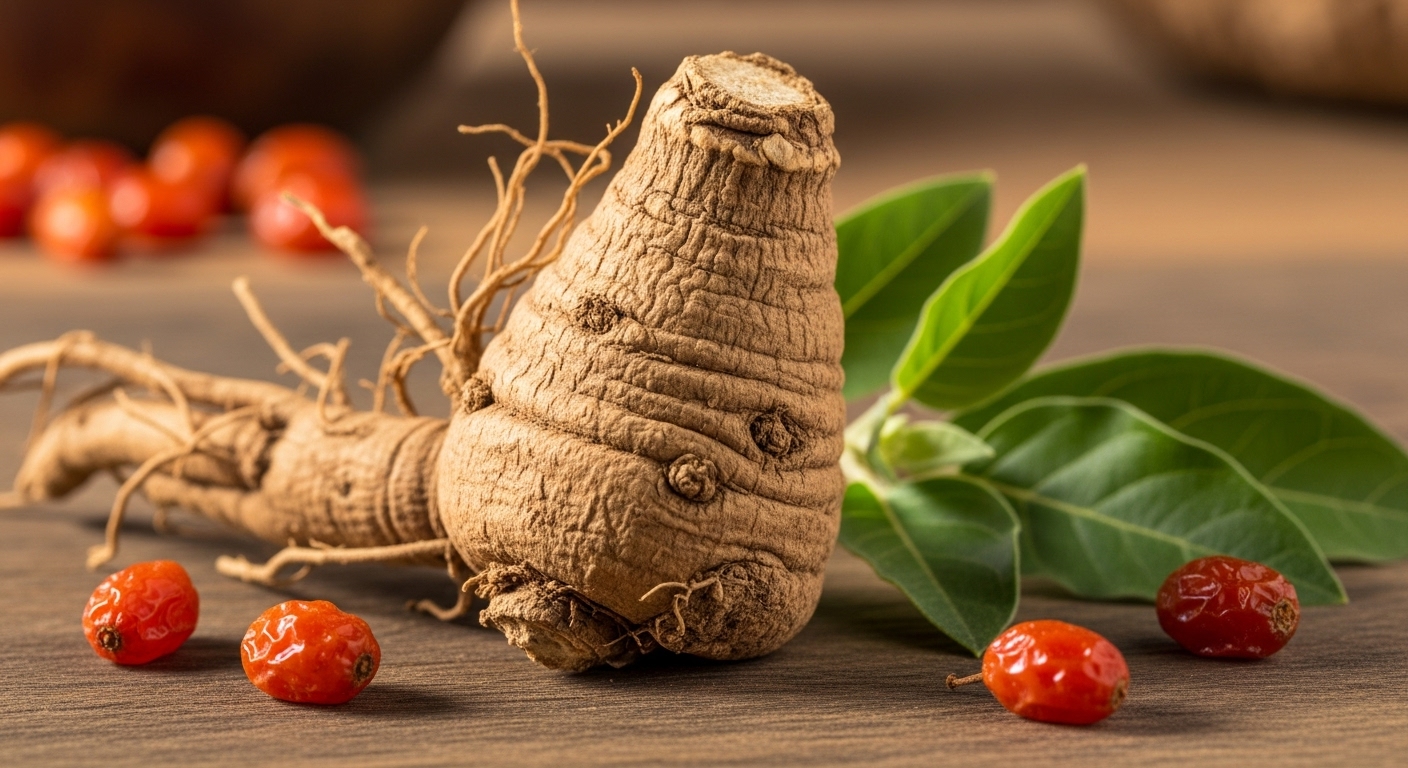Dr. Kumar’s Take
This study adds scientific support to a traditional herb. Ashwagandha root extract increased testosterone and DHEA-S in aging, overweight men while also improving measures of vitality. For men struggling with low energy and declining hormones, this offers an evidence-based natural option worth considering.
Key Takeaways
✔ Ashwagandha raised testosterone and DHEA-S levels in aging men.
✔ Markers of vitality and well-being improved with supplementation.
✔ The extract was safe and well tolerated, with no major side effects.
✔ Suggests a role for ashwagandha in supporting hormonal health as men age.
Actionable Tip
If you are an older man experiencing low energy and symptoms of hormone decline, discuss with your doctor whether adding ashwagandha root extract could complement lifestyle and medical strategies.
Brief Summary
This randomized, placebo-controlled trial investigated ashwagandha root extract in overweight men aged 40–70. Participants took a standardized extract daily for 8 weeks. Outcomes included testosterone, DHEA-S, and self-reported vitality measures. Results showed that testosterone increased by about 14.7% and DHEA-S by roughly 18% in the ashwagandha group compared to placebo. Vitality scores also improved, with participants reporting more energy and well-being. The supplement was well tolerated with no serious adverse effects.
Study Design
- Population: Overweight, aging men (40–70 years old).
- Intervention: Standardized ashwagandha root extract daily.
- Control: Placebo group.
- Duration: 8 weeks.
- Outcomes: Testosterone, DHEA-S, and vitality questionnaires.
Results
- Testosterone increased by about 14.7% in the ashwagandha group compared to placebo.
- DHEA-S rose by roughly 18%, indicating a broader hormonal effect.
- Vitality measures improved, with participants reporting more energy and well-being on standardized questionnaires.
- Safety: No serious adverse effects were noted during the 8-week trial.
Biological Rationale
Ashwagandha (Withania somnifera) is classified as an adaptogen. It may reduce stress hormones like cortisol, freeing up hormonal pathways that support testosterone and DHEA production. Its antioxidant effects may also improve mitochondrial function and energy levels.
Related Studies and Research
Podcast: Testosterone Replacement Therapy Explained – Anchor breakdown on routes, monitoring, and outcomes.
Ashwagandha and Hormones in Aging Men – Crossover trial showing increases in testosterone and DHEA-S.
Tongkat Ali Raises Testosterone: Meta-Analysis – Evidence that Eurycoma longifolia can elevate total testosterone.
Tongkat Ali Physta in Aging Men RCT – Placebo-controlled multicenter study in older men.
Frequently Asked Questions
How long before results appear?
Improvements in testosterone and well-being were noted after 8 weeks of supplementation.
Can younger men benefit?
Most data are in older or stressed populations. Younger, healthy men may see smaller effects.
Is ashwagandha safe?
Yes. In this trial, it was well tolerated with no serious side effects. Always use standardized extracts and consult your healthcare provider.
Does it replace testosterone therapy?
No. Ashwagandha is a supportive option, not a replacement for TRT in men with true hypogonadism.
Conclusion
This randomized trial supports the role of ashwagandha root extract in improving hormonal health and vitality in aging men. With measurable increases in testosterone and DHEA-S plus improvements in energy and well-being, it offers a safe, evidence-backed option to support healthy aging.


